By Shadan Muneer
Among the attributes that define brand India and its culture is its rich heritage of arts and crafts. From the Barter System of trade to the living rooms of art connoisseurs, art and artisans have had a long journey, touching our lives.
A rare painting, exquisite fabrics, pottery, rugs and carpets and impeccable silverware could be a collector’s pride or an art lover’s passion but whenever we are buying these, we help a struggling tradition survive.
Giving a boost to such a tradition is permanent exhibition venues that provide a platform for artisans to directly market their products to discerning customers without the role of middlemen.
JSS Urban Haat, built on the lines on the lines of Dilli Haat, is one such exhiition venue located in Mysuru.
This Weekend Star Supplement takes you on a walk through the corridors and guts of JSS Urban Haat and gives a glimpse of flawless, delicate and subtle art works.
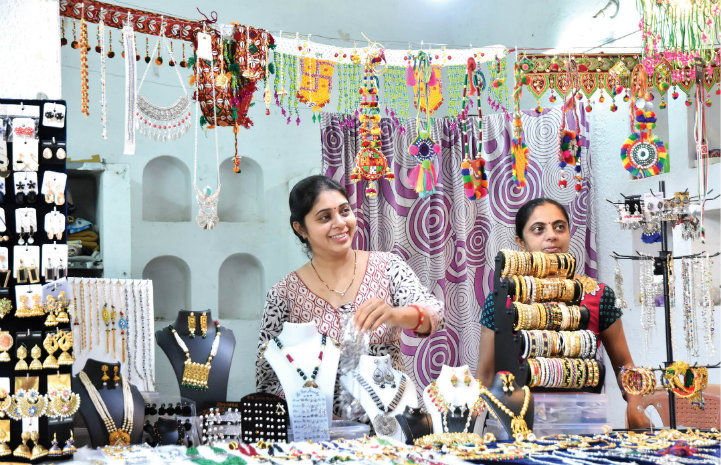
When in Mysuru… JSS Urban Haat
A major factor affecting handicraft industry is the inability of artisans to adapt to change and reluctance to accept new designs and trends. This is compounded by limited exposure to contemporary tastes of buyers. Another factor is that artisans are unable to reach the end-consumer owing to absence of a formal and reliable marketplace where they can directly contact customers without middlemen-meddling.
With an aim to address these issues, JSS took the lead in setting up a space for sale of traditional products and JSS Urban Haat was established in 2007. Urban Haat invites artisans from all over the country and facilitates direct trade link between artisans and customers.
JSS Urban Haat, modelled after Dilli Haat is conceptualised as a permanent exhibition centre for handicrafts, food and cultural activities. Dilli Haat is a paid-entrance open-air food plaza and craft bazaar located in Delhi, run by Delhi Tourism and Transportation Development Corporation.
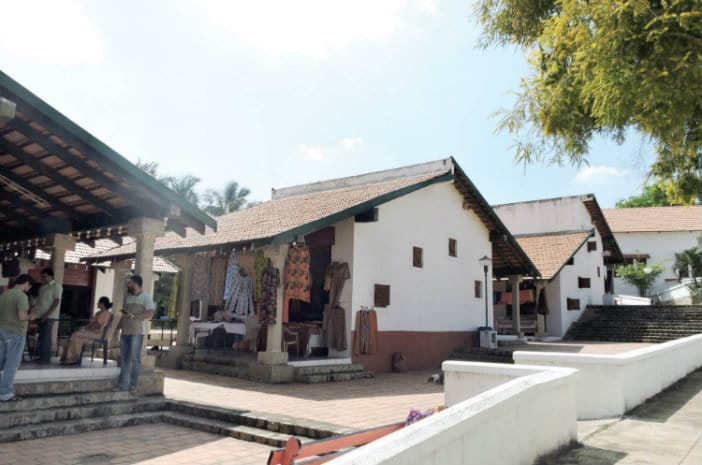
JSS Urban Haat took shape under Public-Private-Partnership model where Union Ministry of Textiles contributed 70 percent of the cost while the JSS Mahavidyapeetha provided 15% and Karnataka Government funded the rest. The Urban Haat has a beautiful and lush green 14 to 15-acre campus on Hebbal Ring Road presently comprising 36 permanent stalls, an administrative block, and a food court called Udupi Palace that was opened recently. The campus has a spacious place for parking and has a rural outlook.
Haats were traditionally called ‘Bazaars’ and JSS Urban Haat stands out in a village-like ambience with greenery all around in contrast to the glitz of other seasonal exhibitions. The stalls are tastefully designed in rows which look like traditional homes. The terraced landscape adds to the beauty.
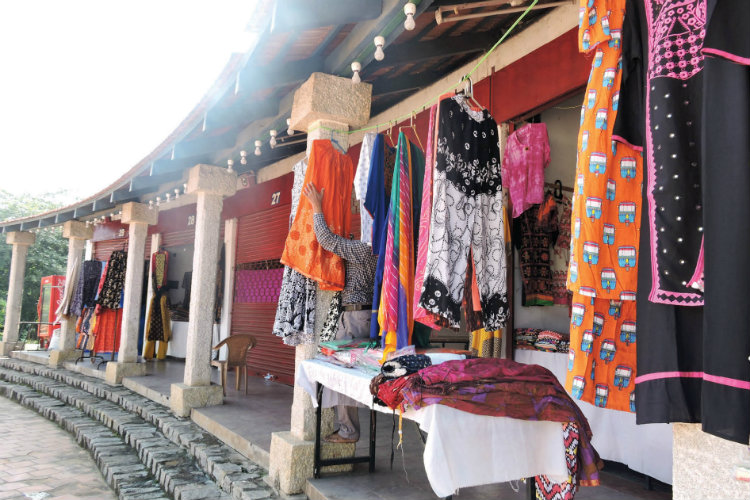
Crowd-puller: 110 successful exhibitions
Speaking to Star of Mysore Dr. Ranganathaiah, Director (A&A) Technical Division of JSS Mahavidyapeetha said that the Haat has so far hosted over 110 expos successfully bringing together over 7,000 artisans from different States under one roof making a business of Rs. 27 crore.
“Throughout the country there are 36 Urban Haats out of which some are not functioning and JSS Urban Haat holds the second place in India for successfully hosting artisans. Facilities and hospitality that we provide attract artisans and they include National and State awardees,” he added.
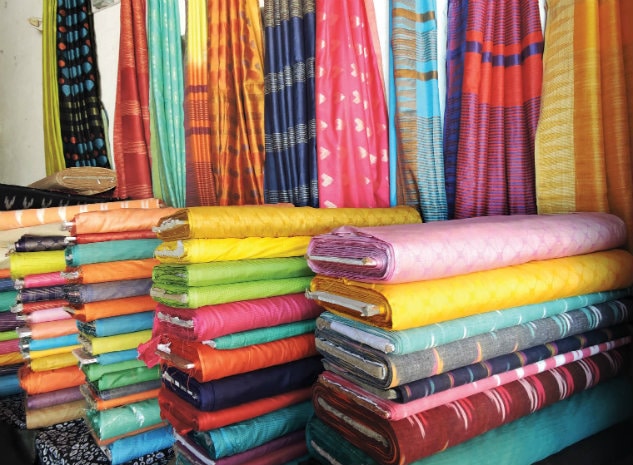
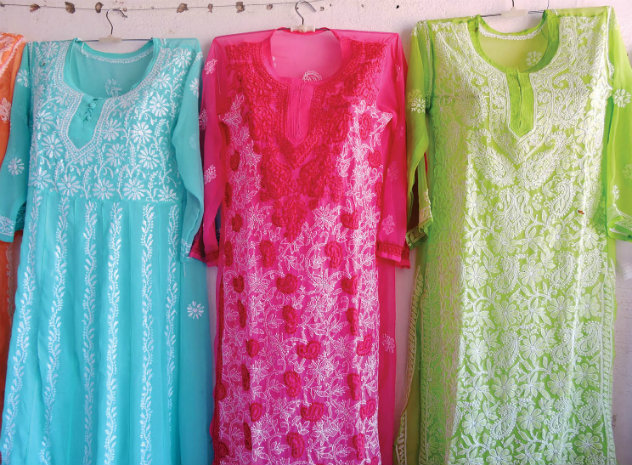
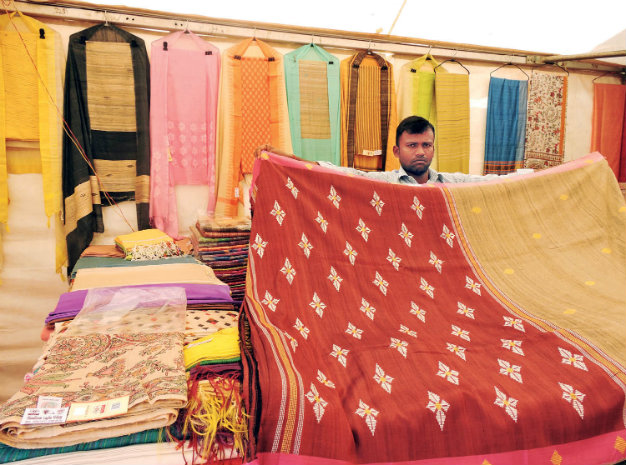
Future plans
Weavers, craftsmen, cooperative societies are invited to display their finest crafts. The State Government has announced Rs. 5 crore for improving the Haat. “We plan to upgrade facilities and keep the Haat running all 365 days, build an amphitheatre to accommodate about 300 to 400 people,” he added.
“We have plans to construct a kids play area, have an attractive entrance arch gate, a dormitory to house artisans and also increase permanent stalls from 36 to 100. We want to make this as a tourist place and a must visit for every tourist who lands in Mysuru,” he said.
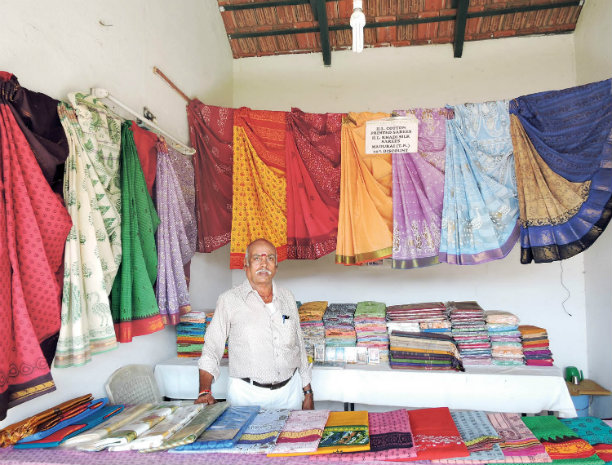
Checks and balances
Many checks and balances are implemented before inviting artisans. They will be issued a card by the Centre to put up stalls and they are monitored by Ministry of Textiles. Only when the artisan passes the entire process, he/she is certified as genuine artisans.
Manibhen from Gujarat is the oldest artisan of Mysore Urban Haat who has been part of all the exhibitions. She says “I have been displaying my products from the past 12 years Mysuru locals are fond of Gujarati items and prefer buying Ghagra Choli, mirror work Kurtis and traditional jewellery, the organisers are extremely cordial and Mysuru is one of my favourite places,” she opines. She makes at least 20 percent profits in each expo.
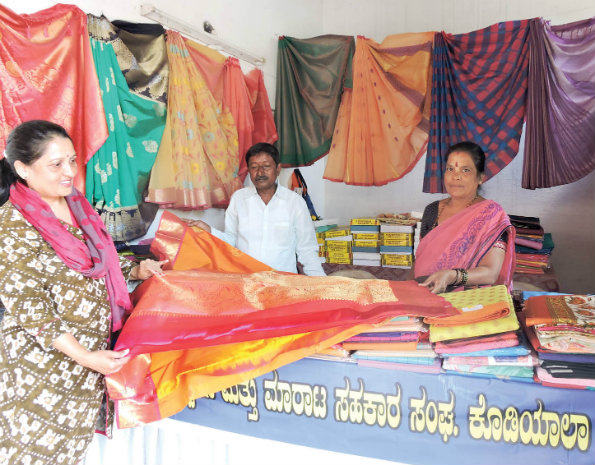
Each season of the Haath has a theme and gets its name for the expo accordingly. Shivananjaswami, Project Officer, JSS Urban Haat says that the idea of Urban Haat is noble which aims to promote artisans. Since inauguration, 20 States have showcased their handicrafts including Rainbow-coloured embroidery traditional dresses, lace bangles, blue pottery, footwear from Rajasthan, Ikat Sambalpuri sarees, colourful sculptured articles, palm leaf engravings of Odisha, variety of leather products, Chanderi silks of Madhya Pradesh, Pashmina shawls of Kashmir, jute products, cotton sarees of West Bengal, Bamboo articles and Terracotta crafts of North East.
This apart, exhibitions have been held for Hyderabadi jewellery and lace works of Andhra Pradesh, Kanjivaram and handloom products of Tamil Nadu, Lucknow Chikan embroidery, marble products, Banaras silk sarees, carpets of Uttar Pradesh, Maithili and Madhubani paintings and handlooms of Bihar, Phulkari and Patiala suits from Punjab, Tassar silk Jharkhand, Mysore Silk, Mysore paintings, sandalwood- crafted carved articles and Channapattana toys.
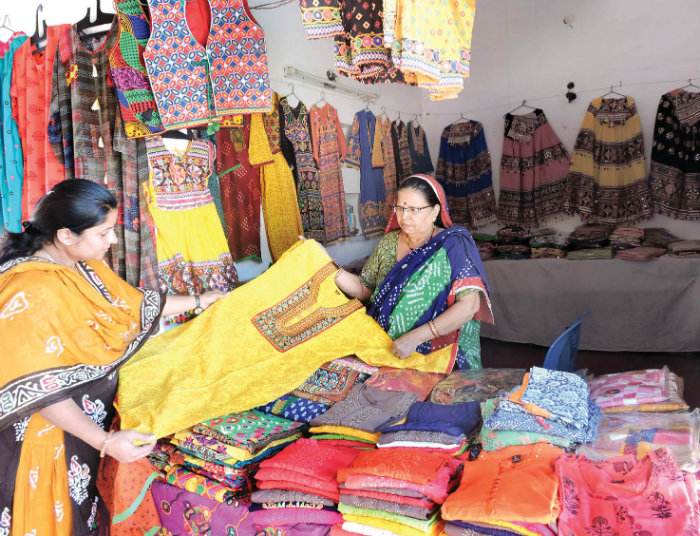
15 expos per year
Urban Haat traditionally means ‘Nagara Santhe’ and we have been regularly conducting expos throughout the year. On an average, we organise around 15 expos a year as we want to benefit artisans and avoid middlemen — from creator to buyer with no role for middlemen. In our previous expos, artisans have given demonstrations and have also provided handicrafts training to school children.
— Dr. C.G. Betsurmath, Executive Secretary, JSS Mahavidyapeetha
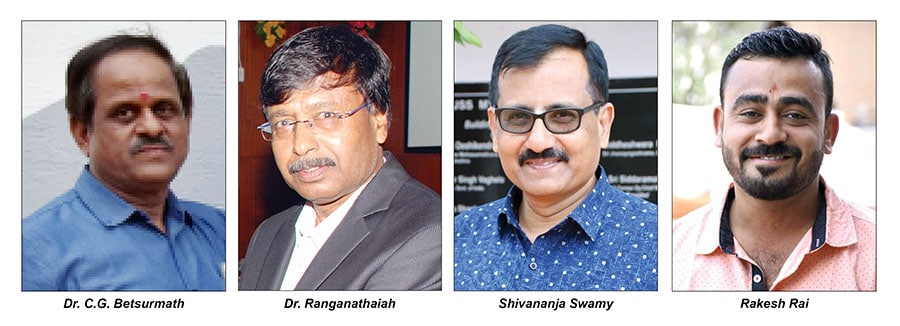
Samskruti eye for art
The ongoing Expo called “Samskruti” was inaugurated on Nov. 22 under the sponsorship of the Office of the Development Commission (Handlooms) Ministry of Textiles, Government of India and Department of Handlooms and Textiles. More than 60 weavers and weaving societies from all over India are exhibiting and selling their heritage products. The exhibition concludes on Dec. 8 and is open from 10 am to 9 pm. Entry is free.
Pratibha, a Mysurean and a doctor by profession says “I am an art lover and a regular visitor. It is a peaceful place and a pleasure to visit unlike the crowded shopping malls. The exhibition tells stories from the heart of rural India through its handicrafts. Every time I come here I make sure to pick up a few things and this time I am looking to buy Ikat saree from Odisha” she quips.
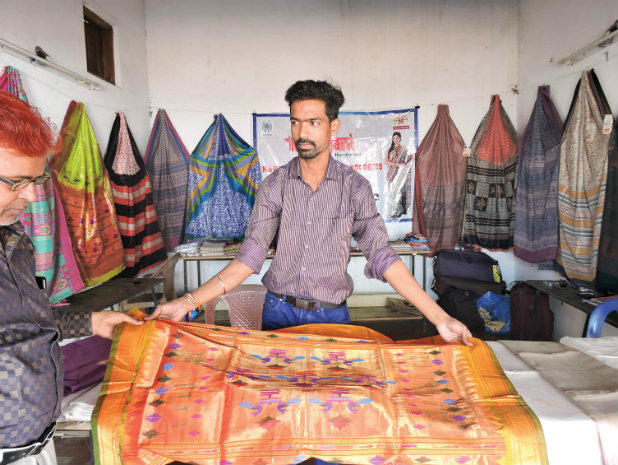
15 States under one roof
At “Samskruti” there are a variety of silk and cotton sarees on display. Dress materials dupattas, bed sheets, blankets, towels, handbags and other products are other attractions. 15 States are participating in the expo and silk sarees of Odisha, Tassar Silk of Jharkhand, Paithani and Malbari Silk of Maharashtra, Mysore Silk, Bawan Buti saree from Bihar, Dhaka Muslin Silk from West Bengal are under one roof. Chikankari Kurtis from Lucknow, cotton sarees from Tamil Nadu, wrought iron and wood items from Uttarakhand and semi precious stone jewellery are also available.
Babulal, an artisan from Tamil Nadu, has set up a stall in almost every expo says that cotton, pure Khadi Silk, Madurai Bandhani sarees sell fast. “I participate in all the expos and have been selling my products here since 10 years. I have regular customers who have been coming to me to buy pure handloom cotton sarees. Prices range between Rs. 600 and Rs. 2,000.
“Local residents ask me for new design borders and colours and we customise it for them,” says Sumitramma from Mandya who has a collection of pure Mysore silk sarees, crepe silk and cotton silk. Another stall comprising pure Khadi cotton fabrics called ‘Desi Khadi’ from Sagar has a variety of pure handlooms. The unique feature is that the entire team of ‘Desi Khadi’ are women.
Rashmi from Vijayanagar says that customers can directly talk to artisans rather than sales staff who parrots the same sentences. “My favourites are naturally dyed sarees. The quality is good and the prices are right though you can bargain a bit,” she adds.
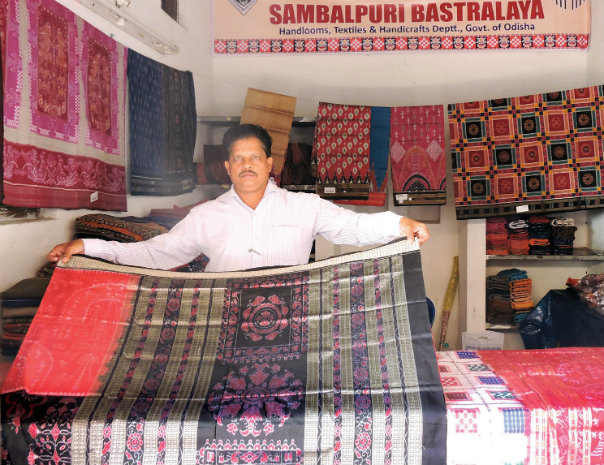
Artisans are family
I have contacts of over 3,000 artisans from all over India. Whoever visits this place will surely buy something and nobody comes here for window shopping. Some of them even do bulk purchasing for a year or so. Artisans share a good rapport with me and they have become like family.”
— Rakesh Rai, Project Co-ordinator, JSS Urban Haat
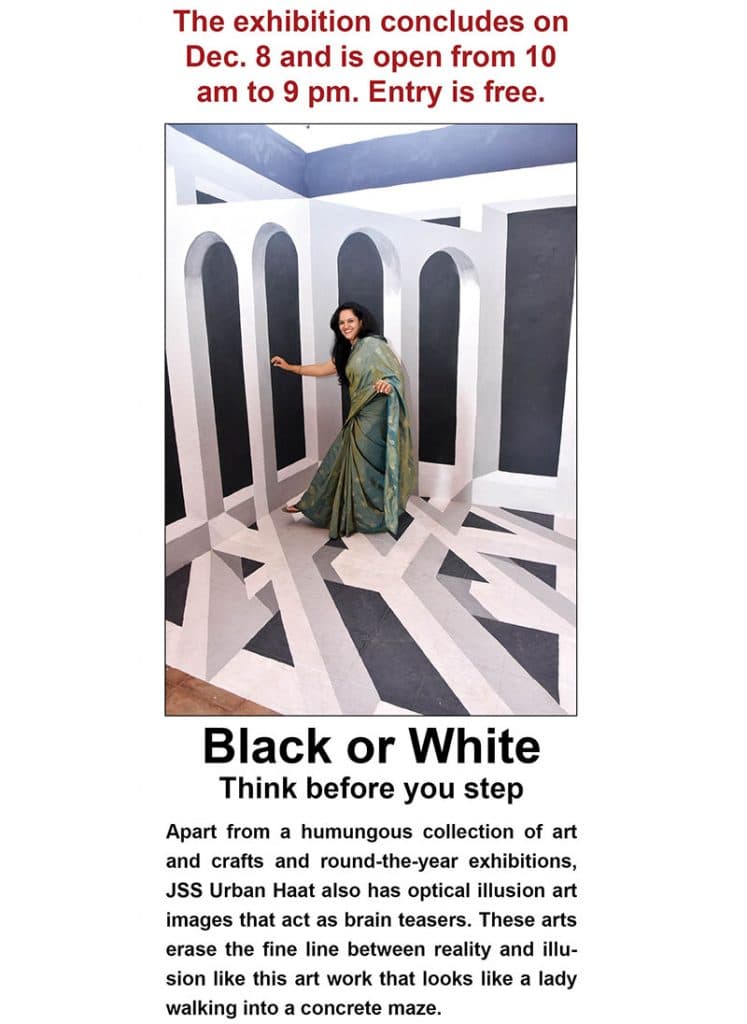
Tea decoction as natural dye
Feather-touch: A saree that weighs just 40 grams
Sunil Kumar an artisan and seller from Madhya Pradesh has a vast collection of sarees which includes specially hand block print, naturally dyed and guaranteed fast colour sarees. He says, “Tea decoction, dried peels of pomegranate and jaggery are used in natural dyes which are used in my handlooms which are also eco-friendly.” He owns a wide range of indigo sarees and believes the naturally dyed indigo colour sarees keeps mosquitoes away.
Pavitra Naik, an artisan from Odisha, has a variety of silk sarees which include Ikat Sambalpuri to Ostuni Silk. “Ostuni sarees is my speciality and is purely handmade silk and takes about one month to finish the work for a single saree,” she reveals.
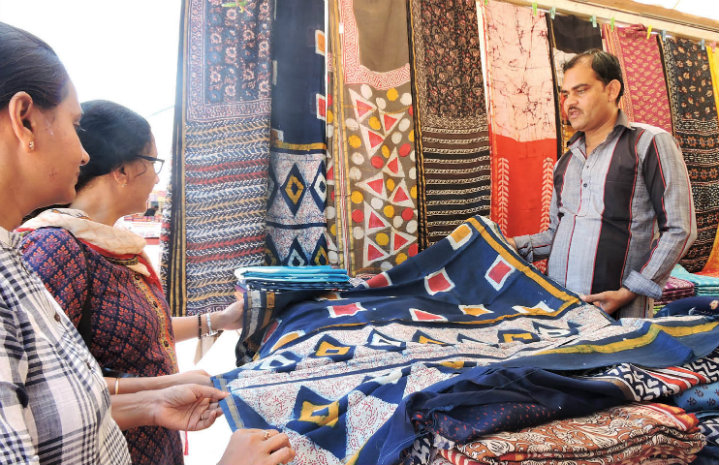
Vishwajeet Shah, an artist from Kolkata has a wide collection of light-weight silk sarees along with pure Malbari Tassar and Lenin silk. He says, “The unique feature of my saree collection is that I own sarees that weighs 40 grams. Rates are fixed as per the weight of the saree I also have Dhaka Muslin and handmade woven sarees and prices start from Rs. 1,300.”
“We specialise in Bawan Buti saree. It takes a lot of hard work to complete one saree. Dhoopian silk and Matka cotton silk are part of my collection,” says Guddu Kumar from Bihar whose products are all certified by Handloom Laghu Udyog.
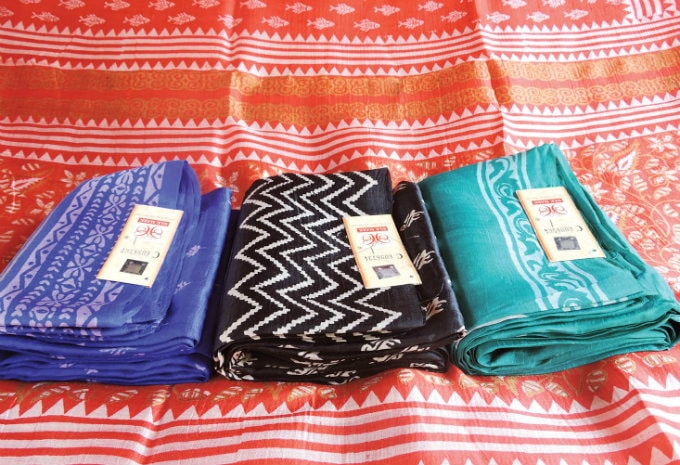
Vaishali, a Mysurean and also an employee of JSS says, “I like buying things of different States and Urban Haat is the best place to shop for things as rates are reasonable. Whenever I have guests, I make sure to bring them here. Now with a food court, it is a good family hangout.”



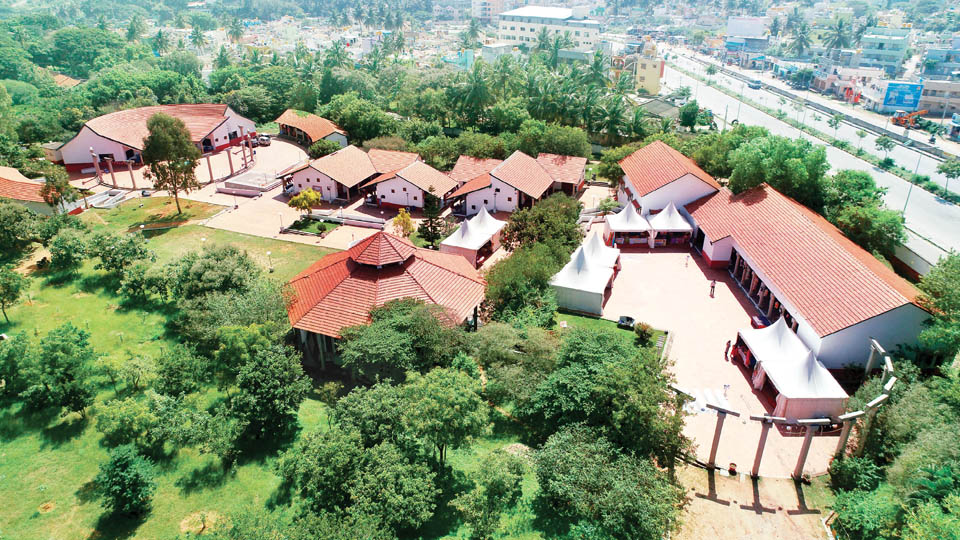




Recent Comments